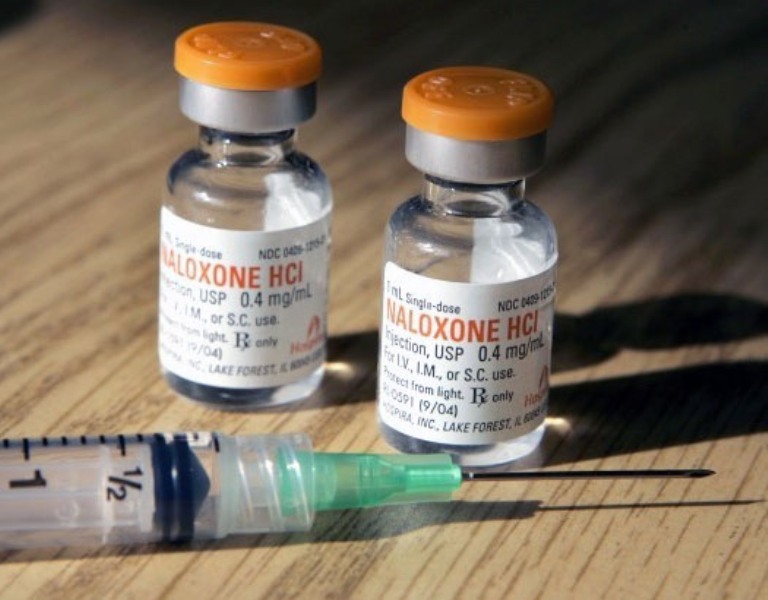
With more people becoming aware of the life-saving benefits of opioid overdose reversal drug naloxone, as well as its ease of use, some communities in Kentucky are now teaching kids how to use it.
Jennifer Stepp, a resident of Bullitt County and the leader of her community Opioid Addiction Team, has already taught her eight-year-old daughter Audrey how to use it. Jennifer’s 25-year-old son has struggled with addiction for most of his life. She plans to host a local workshop on Nov. 21 to teach other children how to administer naloxone and has already received free kits from Evizo, which manufactures naloxone-administering devices.
“This is telling them, if you do find a brother, sister, mother, uncle, not breathing, here’s something that you can do about it,” said Dr. Mina “Mike” Kalfas, a certified addiction expert in Northern Kentucky. “These kids are realizing that drugs can kill them. This is part of an environment where they might find someone dead.”
Elsewhere in the state, nonprofit organization Mentoring Plus of Northern Kentucky held a naloxone-administering workshop last May for nine children ages 13 to 17. The workshop was part of a 10-week drug abuse prevention program for kids.
“For these kids, drug are everywhere—their neighborhoods, schools, sometimes their homes,” said Robin Anderson, program director. “That is their reality, so they need the life skills required to live in and navigate that world: Skills like what to do when their best friend or brother is having an overdose, as most of our kids know someone who has.”
These programs are especially crucial for states like Kentucky, which has experienced a surge in opioid addiction in recent years. A Kentucky Health Issues Poll in 2014 revealed that in Northern Kentucky, nearly 26% of those surveyed knew someone with a heroin problem.
Three years ago, Kentucky put House Bill 1 into effect as part of a plan to crackdown on both drug addiction and pill mills throughout the state. The bill mandates that only licensed physicians can operate pain-management facilities, expanded Kentucky’s prescription drug monitoring system known as KASPER and mandated that both pharmacists and physicians register.
Since the program was launched, researchers at the University of Kentucky reported last August that doctor shopping has decreased by 50%, while both hydrocodone and oxycodone prescriptions across the state have also declined.
